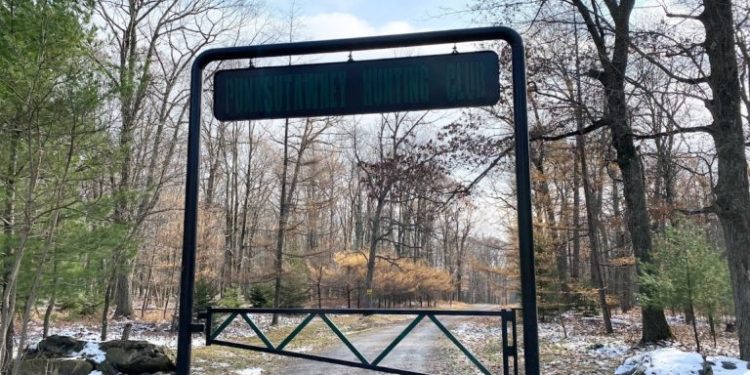Imagine spending the Fourth of July holiday with family in the beautiful forests of the Allegheny Mountains.
You’re sitting out on your porch on private land, enjoying the peace and quiet until a man storms up out of nowhere.
He allegedly admits that he’s been watching you for days with his binoculars from a concealed spot on your property.
Most people would call police. But in this story, the man was an officer of the law — specifically, a Pennsylvania Game Commission officer.
The officer was allegedly surveilling Pitch Pine Hunting Club member, Jon Mikesell, without permission and without a warrant.
Pitch Pine Hunting Club and its neighbor, Punxsutawney Hunting Club, have reportedly experienced these types of intrusions for years.
Wildlife officers believe searches and surveillance of private land are permissible though thanks to an arcane Pennsylvania legal rule, according to the Institute for Justice.
Under the “open field” rule, private land gets no constitutional protection from warrantless searches, which resulted in the IJ-filed lawsuit on Thursday.
“These clubs are private places where generations of hunters have come to spend quality time with their sons, fathers and close friends,” stated IJ Attorney Joshua Windham.
“If Pennsylvania wildlife officers want to snoop around property that is so plainly private, they need to get a warrant.”
Club members are ordinary Pennsylvanians who desire and expect privacy on their land.
Punxsutawney member and board president, Frank Stockdale, says that club members feel unsettled by the constant intrusions.
“People should feel secure on private property,” Stockdale said. “They should feel like they have privacy and seclusion. But the Pennsylvania Game Commission is making us feel the opposite — we feel invaded.”
Both clubs have gone to great lengths to mark their land as private.
There are “No Trespassing” signs and purple paint marks posted along the property lines and throughout the properties. There are also locked gates at all entrances.
“There are certain things you think you have as a property owner. You have ‘No Trespassing’ signs, you expect privacy, and yet this guy is walking in camo on your property like he owns the place,” Mikesell said. “Do we have any rights?”
Wildlife officers, however, believe they can treat private land like public property because the Pennsylvania Supreme Court said they could in a 2007 ruling.
In Commonwealth v. Russo, the court held that the Pennsylvania Constitution’s provision against warrantless searches does not apply to private land.
This misreads the Pennsylvania Constitution, which has unique text protecting “possessions” — including private land —from such intrusions.
“Russo was wrong,” IJ Attorney James Knight said. “Pennsylvania’s constitutional text and history make clear that private land deserves strong protection from warrantless intrusions—and we intend to prove it.”
Punxsutawney and Pitch Pine are suing under Article I, Section 8 of the Pennsylvania Constitution, and seeking a declaratory judgment that the statutes authorizing wildlife officers to conduct warrantless searches of their land are unconstitutional, and an order enjoining the Pennsylvania Game Commission from conducting future warrantless searches.
“A victory here would have an impact far beyond the hunting context,” IJ Attorney Daniel Nelson said. “It would reestablish core constitutional protections for private landowners throughout Pennsylvania.”




